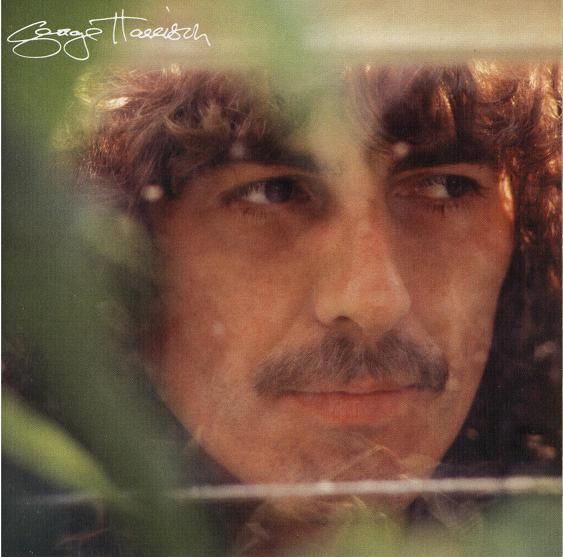
George Harrison (1979)

1. Love Comes to Everyone
2. Not Guilty
3. Here Comes the Moon
4. Soft-Hearted Hana
5. Blow Away
6. Faster
7. Dark Sweet Lady
8. Your Love is Forever
9. Soft Touch
10.If You Believe
By 1979, George Harrison had long since shed the shadow of Beatlemania and emerged as a figure of curious contrast—equal parts seeker, satirist, and spiritualist. His self-titled album from that year, George Harrison, is often referred to as his “California record”—a laid-back affair bathed in West Coast polish and soft-focus production. But while the mood is consistently pleasant, what’s striking is how frequently the album seems to coast rather than soar.
Coming off the modest artistic success of Thirty Three & 1/3, where Harrison’s songwriting and guitar work regained a sense of bite, this album feels like a retreat. The edges are smoothed, the sentiments softened, and the music—while tuneful—rarely reaches for anything beyond comfort. One can’t help but feel that Harrison, so often at his best when troubled or tangled, may have relaxed a little too much here.
To be fair, there’s nothing overtly wrong. Harrison’s voice remains immediately recognizable, as does his signature slide guitar, though even the latter feels curiously muted—present, certainly, but stripped of its usual bite. There are tracks here where, without prior knowledge, one might struggle to identify the guitarist at all. The production is slick, with electric pianos and mellow textures dominating the sonic landscape. It all feels pleasant, yes, but occasionally unconvincing.
Blow Away, the album’s lone chart success, neatly encapsulates the record’s ethos: cheerful, melodic, and instantly accessible, but ultimately rather slight. There’s nothing to dislike, but not much to linger on, either. More intriguing is Not Guilty—a track written over a decade earlier for The White Album and here resurrected in a warmer, less confrontational guise. It lacks the jagged energy of the original Beatles-era recording but remains one of the album’s most structurally sound compositions.
Another minor triumph is Here Comes the Moon, a song whose title alone invites obvious comparisons. Thankfully, it avoids outright mimicry, and though it shares the celestial serenity of its more famous predecessor, it stands just far enough apart to avoid self-parody. It’s fragile, meandering, and strangely endearing. Elsewhere, the material is less compelling. Dark Sweet Lady, dedicated to new wife Olivia, is tender in intent but never quite blooms into a fully realized love song. Faster, a tribute to Harrison’s passion for Formula 1 racing, is oddly static given its subject matter—an ironic choice of title for such a subdued composition. One suspects it reads better on paper than it sounds on tape. And then there’s Soft-Hearted Hana, a track whose whimsical, vaguely Eastern-themed lyrics and honky-tonk musical setting feel mismatched to the point of discomfort. It is hard to say precisely what the song is trying to be—satire, homage, or fever dream—but its execution lands awkwardly, and it remains one of Harrison’s more curious misfires.
By the album’s final third, one begins to feel the momentum drain. The songs blur slightly into one another, not through similarity of style but through uniformity of mood. There’s a sense that Harrison, content in his personal life and increasingly detached from the demands of the rock industry, is merely idling in neutral. There are ideas here, to be sure, but few seem fully chased down.
Overall, George Harrison reflects a man at ease with himself, unbothered by trends or expectations, making music that—if nothing else—sounds exactly as he felt. The album’s real flaw may simply be that George, in this moment, didn’t feel particularly inspired.
Go back to the main page
Go To Next Review